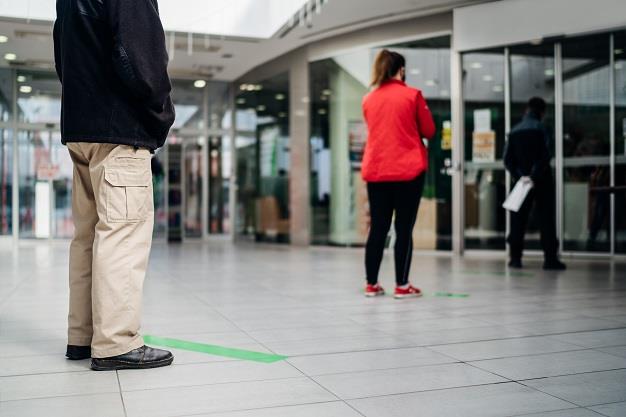Growthpoint Cape Town estimates it has spent R5 million to date on measures like sanitiser and temperature testing, as the CBD's landlord and tennants look for common ground to survive .
Cooperation and support between commercial landlords and tenants in Cape Town’s CBD – from rent relief measures to the successful implementation of Covid-19 protocols – are said to be ensuring South Africa’s most successful CBD will survive the dramatic economic knocks of the coronavirus pandemic and harsh lockdown restrictions.

READ | Weak office market will 'adapt to risks and evolve to be value-packed'
Mother City Landlords have moved swiftly to provide relief and advice to support tenants battling to stay afloat amid stringent lockdown regulations that have played havoc with the economy, says Cape Town CBD property developer Rob Kane, CEO of Boxwood Property Fund. Kane says most landlords in downtown Cape Town, which comprises 80% commercial property, have implemented rent holidays or deferments, with adjustments as time has gone on.
“The general aim is to try to keep our retail tenants afloat until retailers can reopen,” says Kane.
Emphasising the need for landlords and tenants to accommodate each other at this time to find workable solutions that are viable for both parties, Kane notes that different landlords have adopted varying relief strategies and are working hard to meet their tenants half-way.
“We need to work together to find impactful ways to support one another as we can expect another three to five years of tough times ahead,” notes Kane, who is also the chairman of the Cape Town Central City Improvement District (CCID).
This is also the view of David Stoll, Regional Head, Cape Town of Growthpoint Properties, who says “rent holidays and/or deferments are in landlords’ best interests as we will have no business if all tenants (particularly the smaller ones) go out of business”.
“Vacancies and downsizing are inevitable, but in certain circumstances tenants need to be assisted to survive. Short-term valuations will be adversely affected, but at least we will still have tenants. The trick is sorting out the real hardship cases from those chancing their arm and at the same time managing your own cash flow, so as not to fall into hardship yourself”, says Stoll.
Grant Elliott, General Manager, Coastal for Redefine Properties, says that the group is committed to the provision of industry-wide assistance and relief packages for retail tenants, “Our measures focus principally on supporting SMMEs, while also providing relief and assistance to all other affected retail tenants.”
Landlords have also implemented strict Covid-19 protocols, which has been an added expense, but crucial to keep tenants satisfied and to provide a safe environment for business to flourish. Kane says, “Covid-19 has called for many new protocols and expenses; for example, we now clean the lifts in our buildings every half an hour and are replacing our fingerprint access systems. It’s not necessarily required, but we know our tenants appreciate it.”
Stoll adds that the cost of implementing Covid-19 protocols varies per sector – for example, shopping centres, with more feet proportionately, cost more. He estimates Growthpoint Cape Town has spent somewhere in the region of R5 million to date on measures like sanitiser, temperature testing and social distancing measures.
Elliott says it has been a collective effort to make the new measures so successful, “Tenants have been equally cooperative and that has been key to our collective response, together with a communications drive aimed at our customers and employees.”
Stoll, Kane and Elliott stress the need for landlords to adopt an empathetic approach, offer advice, and communicate regularly. Kane says that his tenants appreciated him reaching out, even when it was to have a tough conversation. He also suggests drawing on community ecosystems, “We’re trying to make maximum use of our tenants’ skills right now to give them viable business opportunities. There’s so much to be gained by working together. For example, we now are trying to give work to professionals that reside in our buildings.”
Kane remains optimistic that CBD landlords and tenants will emerge from the pandemic stronger. “I have huge faith in humans and our capacity for resilience. We will get through this. Especially if we continue to be kind to one another.”








